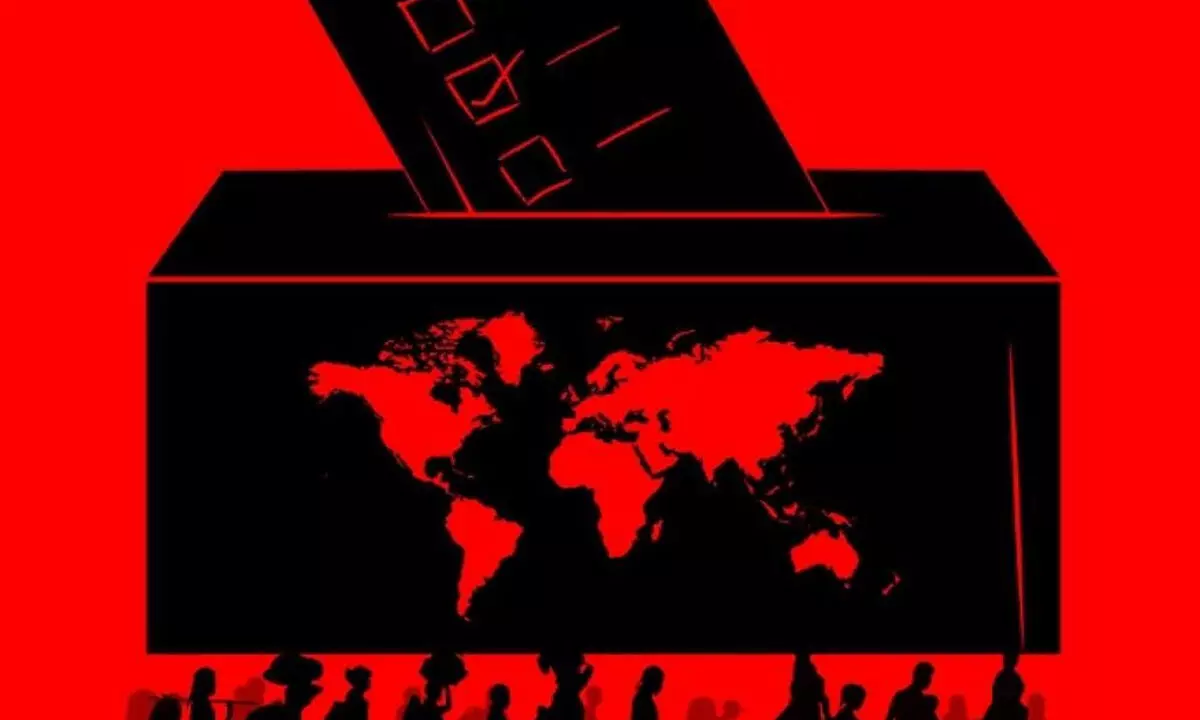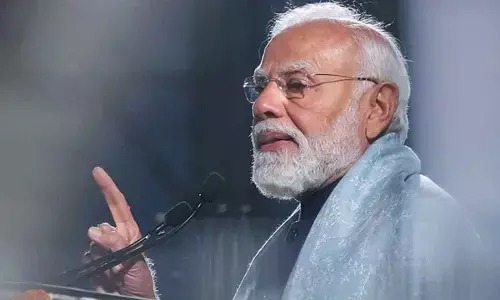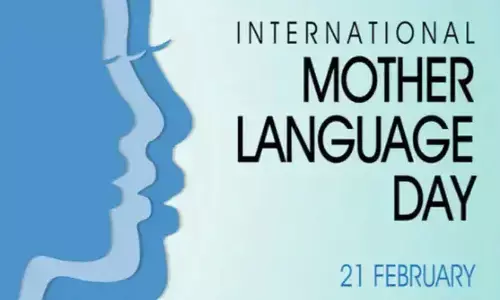Reshaping democracy in new climate

In many ways 2024 will determine the shape and future of democracy as we know it today.
In many ways 2024 will determine the shape and future of democracy as we know it today. This year, about half the world’s adult population will cast vote to elect their governments. The question is whether the current idea of democracy will survive the coming year or be reshaped. We are already seeing the growth of right-wing governments globally, propelled by electorates swayed by fear and polarised polities. Will democracy be reduced to the mere act of casting votes and the subsequent triumph of the majority? The idea and practice of democracy has been about free speech, dissent and strong institutions of balancing power. Will we lose it to the many wars that we see in our world today?
As much as the wars have taken a toll on people, they have also disfigured the grand idea of democracy as a moral force, which would provide space for dissent and justice. The war in Gaza has brought out sharply the double standards of the liberal world; it has made these countries lose their moral authority to hold up a higher standard of human rights. The war has also sharpened the divide between people, their culture and religion.
Then, we are seeing the fear of the “other” due to a surge in migrants. There is no simple reason why people choose to leave their home, family and community. But what is clear is that the number of migrants is on the increase. According to the US-based think tank Migration Policy Institute, the number of non-authorised migrants at the country’s borders has doubled over the past year. It has become the hot potato issue for elections, with Republican governors sending hordes of migrants to states governed by Democratic Party. It is the same in Europe, where a spike in migrant population has given fodder to fear mongering. This means that voters in our democracies are electing masculine governments that promise to keep out the “other”.
The “World Migration Report 2022”, compiled by the Geneva-based International Organization for Migration, finds that the triggers for internal displacement are changing—it is not just conflict that is driving people out of their homes, but also the combination of slow onset of climate-related disasters such as droughts. We know from our experience in India that migration from villages to cities and beyond is multi-pronged; driven by the loss of ability to cope with economic marginalisation and exacerbated by factors, including weather disasters, losses in livelihoods and, of course, the allure of cities. We also know that this migration can be reversed by investments in natural capital and wellbeing. Migration has been stemmed in places where village communities have built local economies by rejuvenating water systems to bolster productivity, adopting low-input agriculture and engaging in similar activities. This is the reason India’s national rural employment guarantee programme, which gives minimum wages for 100 days to adults for work on ecological improvement, despite all its flaws, remains the biggest “coping” mechanism for the country. This is where a huge opportunity exists to build resilience and economic opportunities for the future.
But today’s headwinds are against this reversal. Wars are driving people out, poverty is increasing in an inequitable and divided world and climate change impacts are getting worse. We are not acting at the scale and speed needed to reduce greenhouse gas emissions that are tipping us over.
In fact, the actions that governments will take towards combatting climate change could become yet another ignition point for the reshaping of democracies. The already industrialised world, with its huge unpaid natural debt for years of economic growth built on spewing emissions into the common atmosphere, is finding it tough to reduce emissions. Till now, it has moved from coal to relatively less carbon-emitting natural gas to meet its electricity needs. It has also exported its manufacturing to countries like China and even India. But there has been no real change in their consumption pattern, which would require a re-engineering of the economies to become less carbon intensive.
But now these options are limited, as countries are facing opposition against measures to tighten emissions in sectors like agriculture or industry. This will fuel the reshaping of democracies, where people will “vote” with their fists and might. We saw this in The Netherlands most recently where farmers voted against measures to cut greenhouse gas emissions in their fields.
In Germany, the Green Party has faced anger against its policy to introduce energy-efficient heat pumps in homes. Ironically this is coming at a time, when countries need to do much more to drastically reduce emissions so that all the other related crises do not explode. This is why the future of democracy is so critical in today’s climate-risked world. The fact is that action against climate change is not possible without equity. This necessitates the commitment to democratic principles of pluralism, inclusion and a voice for the voiceless.
(Writer is Director General of Centre for Science and Environment (CSE) and the Editor of Down To Earth magazine. She is an environmentalist who pushes for changes in policies, practices and mindsets)








